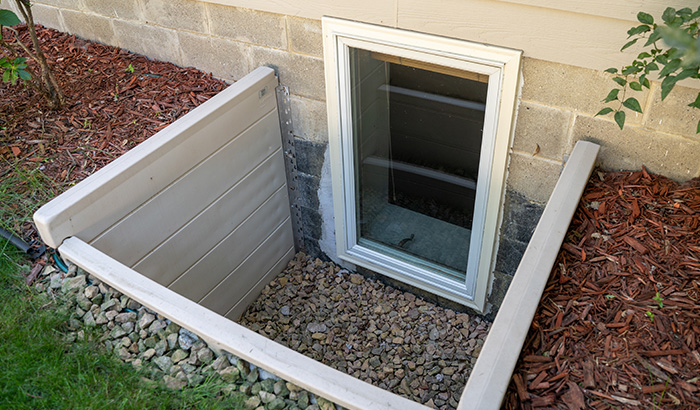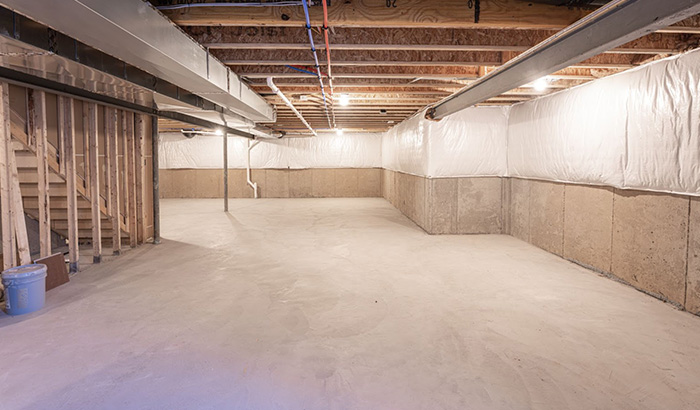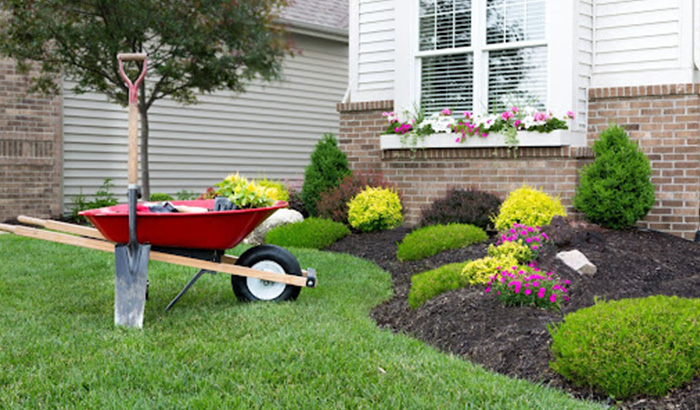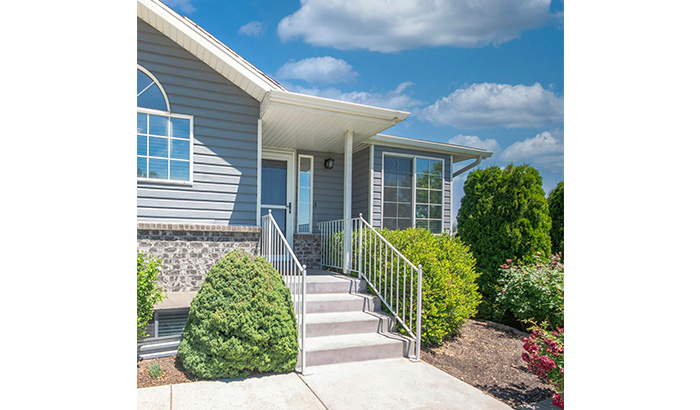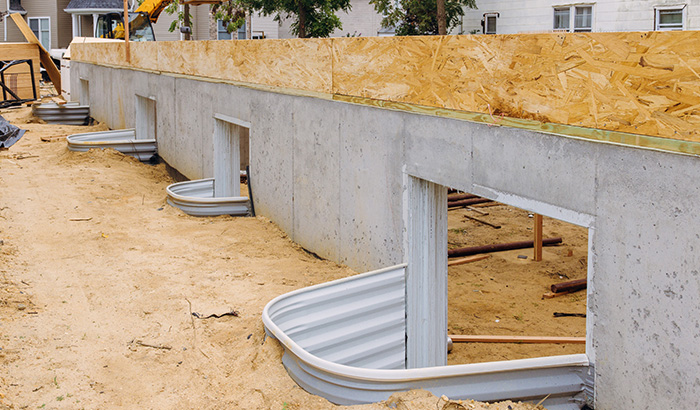On top of having a window well for light in your basement, consider putting in new flooring, if your basement is just concrete. Both will provide warmth and give your home character.
Not sure what’s best? Stay tuned. In today’s blog, we’ll discuss the best types of flooring to install.
What is the Best Flooring for Basements?
When it comes to padding your cold basement, the best flooring carries with it several options with which to choose and is entirely dependent on your desires. The only flooring not recommended would be solid hardwood and laminate flooring made with a fiberboard core that’s not treated for moisture resistance. Both types absorb moisture and will warp and buckle. Some options to consider include:
- Engineered wood
- Ceramic tile
- Rubber
- Laminate (made with moisture-resistant plywood core)
- Epoxy floor coatings
- Vinyl tile
Let’s delve more into the types of flooring, so you can decide what’s best for your home.
Different Types of Basement Flooring
1. Engineered Wood
You can have the best of both worlds with engineered wood flooring. You get the warmth and beauty of real wood, but with a stable, moisture-resistant benefit. All you need to do is click together the tiles and planks, once the ground is prepped. Note: ensure the type you choose is for below-grade basements.
2. Ceramic Tile
Designers love this type of flooring due to its versatility. You choose from many different colors and styles and eliminate the worry of moisture. You apply ceramic tile directly onto concrete that’s smooth and best of all, free of cracks.
3. Rubber Flooring
This flooring is popular with DIYs since it comes in sheets with interlocking edges you can easily install. You have many colors to choose that you can use to create some fun designs. Rubber floors are the perfect choice for families with children.
4. Epoxy Floor Coatings
If you want hard surface flooring, epoxy is a good choice. And, because it comes in many colors, it won’t be hard to find the perfect match. It’s also waterproof and easy to apply.
Vinyl Tile
This tile goes directly over prepared concrete and can withstand minor flooding with no adverse effects. It provides some cushioning underfoot and is less expensive than ceramic. If you want a vinyl that mimics ceramic, real stone, or even wood, spend a little extra on the vinyl tile; people won’t even know the difference.
Things to Consider
A concrete basement is porous and prone to moisture or water vapor coming up through the slab. Although the flooring is typically unaffected, you still need to ensure mold and mildew can’t grow underneath your basement flooring. Or in cases of flooding, ensure you have a sealed window well, preferably with a cover.
Try installing a vapor barrier, such as sheet plastic, or seal the slab with paint or epoxy coating made for damp concrete floors and walls. You can also raise the floor with a waterproof subfloor. It works by using interlocking plastic tiles elevated on grids, thus creating an air space below the floor.
Contact Windowell Expressions
In addition to new basement flooring, consider replacing your window wells or installing foundation liners. We can help you choose the best ones for your home, so call us today.

